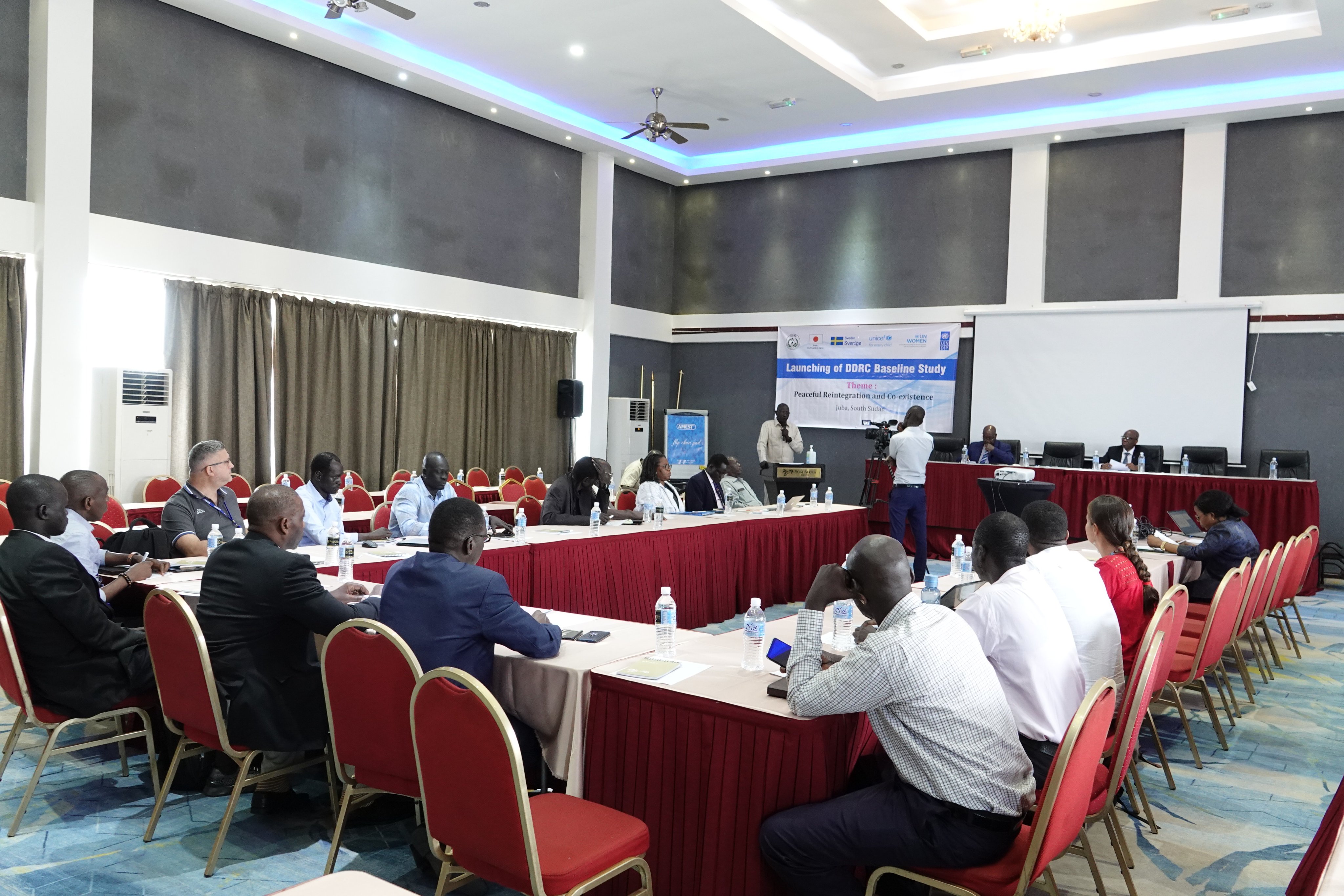Reintegration of Ex- Combatants in South Sudan: Where do we stand?
August 29, 2023

During the Launch
On Tuesday, 28th August 2023, the National Disarmament, Demobilization, and Reintegration Commission (NDDRC) in partnership with the United Nations Development Programme (UNDP) with support from the governments of Sweden and Japan and in collaboration with UN Women (United Nations Entity for Gender Equality and the Empowerment of Women) and UNICEF (United Nations International Children’s Emergency Fund), launched a Disarmament Demobilization and Re-integration (DDR) Baseline Study and Assessment to inform all stakeholders on reliable and detailed contextual DDR programming in South Sudan.
The largest of its kind conducted in the region, the assessment reached 12,226 respondents with findings that provide a clear understanding of the specific issues, themes, and requirements for successful and context-driven reinsertion and reintegration of Ex-combatants, Children and Women Associated with Armed Forces and Armed Groups, and other people associated with the armed groups. The study also provides the evidence base for a community-based reintegration approach, targeting other conflict-affected groups needing reintegration support.
Attended by partners and stakeholders, the launch hosted UN Agencies (UNDP, United Nations Women (UN Women), United Nations Mission in South Sudan (UNMISS), the Reconstituted Joint Monitoring and Evaluation Commission (RJMEC) , Representatives from the Ministry of Foreign Affairs and International Cooperation, the Advisor on Peace and Security of the Ministry of Peacebuilding, the National Transitional Committee, and the Chairman of the NDDRC.
Ayuen Alier Jongroor, the chairman of the NDDRC, the host, welcomed all those in attendance and appreciated the support from stakeholders that enabled the process and launch of the study.
UNDP’s Deputy Resident Representative - Programmes, Mr. Titus Osundina, in his remarks, asserted that a reintegration strategy that involves the wider host community fosters social cohesion and peace while discouraging marginalization and further noted that UNDP recognized that the way forward for communities to abandon conflict and violence, is for their development needs must be addressed.
While Ambassador Maj. Gen. (rtd) Charles Tai Gituai of RJMEC, requested all stakeholders to support DDR in South Sudan because, according to reports, there are over 3 million arms in the country. “Since the unification of forces is a prerequisite of Revitalized Agreement, DDR needs to be taken more seriously,” he stated. He further highlighted the advantages of DDR as it enables security stabilization, increases trust in the government, and brings about socio-economic development.
Speaking on behalf on UN Women, Korto K. Williams, said that she appreciates how DDR now involves the care for vulnerable people, the disabled and women and children who also affected by the armed forces.
In conclusion, the Minister of Foreign Affairs and International Cooperation, Hon. James Pitia Morgan promised to collaborate and support the DDR efforts by the NDDRC and encouraged members of the armed group to lay down their weapons and live in peace.

 Locations
Locations